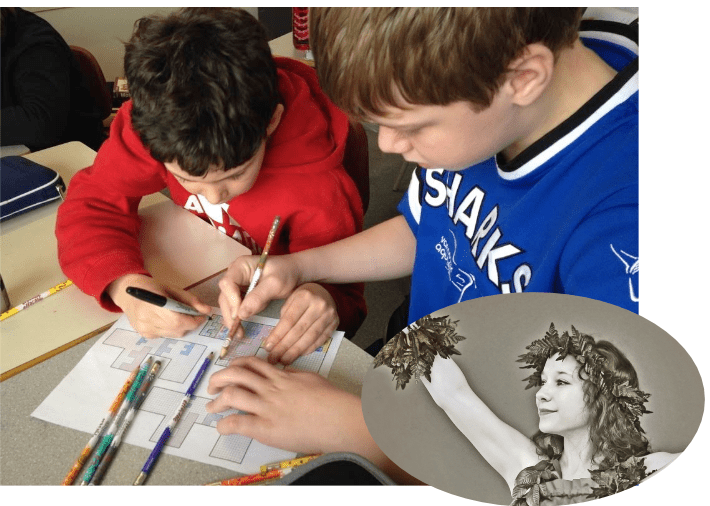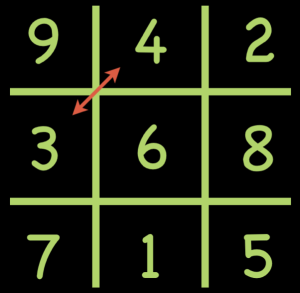The last time we talked you introduced us to cipher-breaking in World War I.
I always mention war if I have the opportunity, because that engages the half of the class with excess testosterone 😉
The link to war also connects the problem to the real world. Do all good problems need to be connected to the real world?
No, I use a lot of stories about the gods and heroes, star wars, little pigs being eaten by wolves etc.
Is a story necessary?
No, I also get high engagement levels with abstract problems. For example, the first question I normally ask a grade 3 class is “put the digits 1 through 9 onto a tic-tac-toe board so that no two consecutive digits touch. For example, the following isn’t a solution because the 3 and 4 are touching.
There is something funny with that problem.
What’s funny?
When 6 in the centre, there is nowhere to put the 7.
Yes – I think I agree.
If you put the 7 in the centre there is nowhere to put the 6 or 8. If you put a 8 in the centre there is nowhere to put a 7 or 9… You can’t put anything in the centre… It doesn’t work.
Good for you. Yes, it’s an impossible problem. Many grade 3s think that if they just work hard enough, they can solve anything. I want to burst that bubble the first day of class.
Nasty 😉
No – engaging 😉 They don’t trust me after that. Students put too much trust in their teachers <laughter>.
I regularly ask my classes to solve problems that are impossible. I also use impossible problems to slow down the top students.
Isn’t there a danger that they will get frustrated?
Frustration is a part of life. Students should be stretched to lengthen the amount of time they can focus on a problem. Your job as teacher is to discern when energizing frustration is about to turn sour. At that point you can intervene.
Isn’t there also a danger that students will start to use “it’s impossible” as a slap-dash answer to all manner of problems… just to avoid working.
Yes, it is therefore important to demand that a verdict “it’s impossible” is accompanied by a solid argument.
If the problem has a story, you can instead choose to let the student admit defeat and see if peer pressure and boredom will convince them to keep on trying after you leave their table. So in a Star Trek puzzle in which the Enterprise is defending against the evil Borg you could just say “So the Earth got obliterated?! That’s too bad!” and then just walk away from the student.

